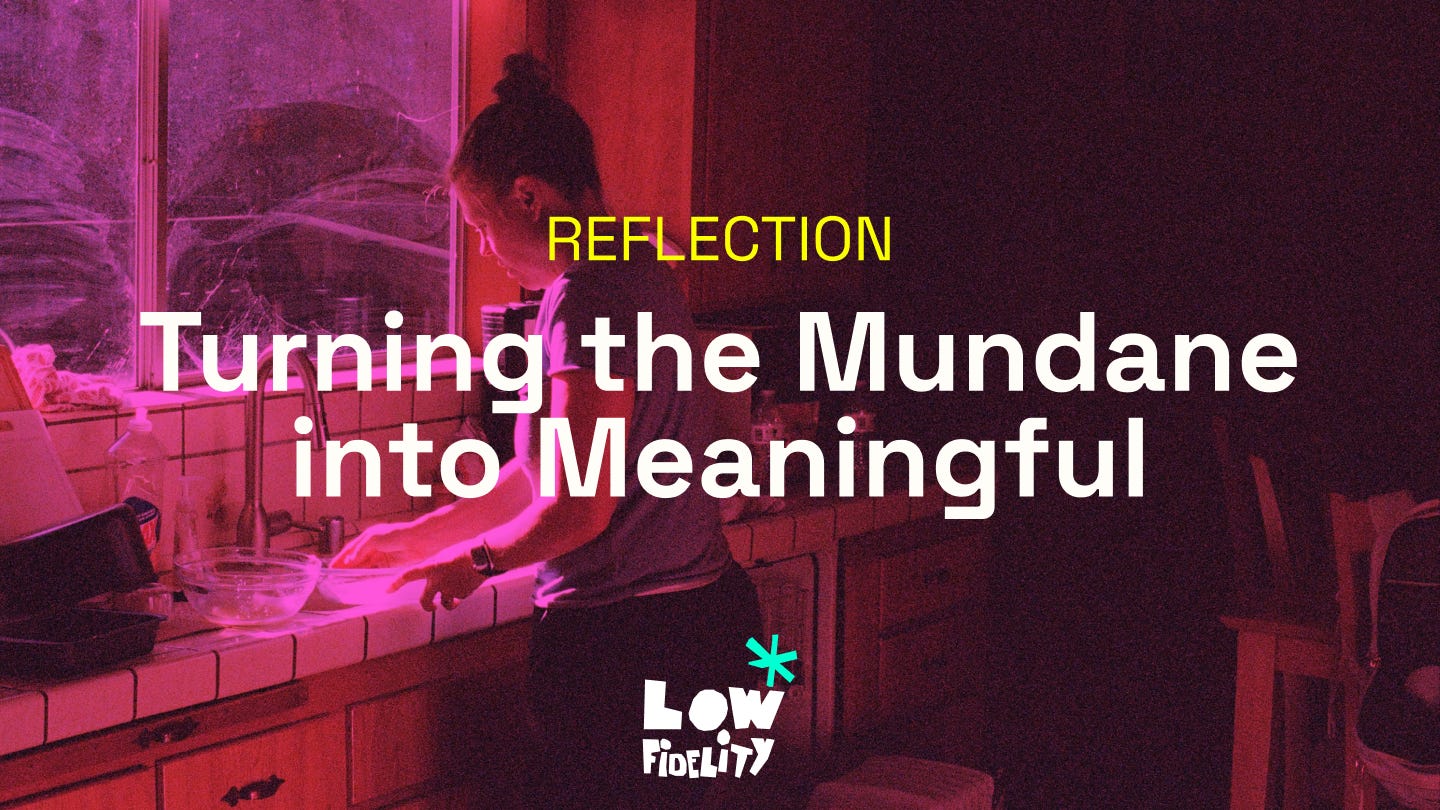🪄 Turning the Mundane into Meaningful
The mundane is the canvas upon which the extraordinary is built.
I recently saw a message from the Waking Up app on my phone that I can't stop thinking about: "Do the next thing as impeccably as you can, as though this single action had to stand the test of time."
This message pops into my head each time I work on a task that I'm not fully into, like updating a graphic for the tenth time that day, so I drift into autopilot and just want to get the task done.
As soon as I am reminded of that message, I refocus and commit to doing my best, no matter how small or mundane the task feels.
One approach that helps is for me to connect with something about the task that I can improve upon and then dedicate my efforts to doing it well. I learn what I can from the opportunity in front of me.
That shift turns the mundane into something more meaningful.
Mundane tasks span a range on one side of the spectrum, from something as simple as recreating a graphic to writing copy for a government contract bid.
Don't get me wrong, these tasks are important, but they don't spark the same energy as, say, sketching a new screen for a checkout flow and testing it with customers.
So how can I apply the mindful message while working on a task I'm not fully into?
I can:
Set the intention to complete it with all my attention
Follow the instructions carefully
Ensure everything is aligned and readable
Name layers for teammates who will inherit the file
Double-check my work
Deliver on time
Communicate clearly
All this may seem unnecessary for a simple graphic design task, but I believe that how you do one thing is how you do anything.
So paying attention to details in small tasks helps us pay attention to the details in the bigger tasks, and over time, it becomes ingrained in our process.
Next time you face a task you want to rush through, ask yourself, “How can I do this to stand the test of time?”
In stillness, find your next step.✊🏽
Low Fidelity explores the inner game of creativity through mindsets, mindfulness, and personal growth, drawing on honest stories and lessons from lived experience. Inspired by a Zen approach, it invites presence, patience, and simplicity into the creative process.
Founded and led by Rizwan Javaid, Low Fidelity offers reflections and insights to help readers navigate their own creative and personal journeys with clarity, intention, and a sense of calm focus.





